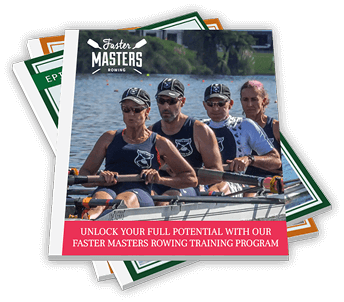What "should" a masters rower be able to do? Training frequency, training volume, training intensity. What is the next big change in YOUR rowing training you can expect as you age?
Timestamps
01:00 When masters start rowing we are likely here for a while. Longevity in the sport is longer for masters than juniors or young adults. We come back to rowing thinking we are the same athlete as we were when we last were in a boat. Article - Rowing and Aging Each Decade.
02:00 Physiological age certainties
Once you age past a certain point you will not be as strong as you were in your youth. This is inevitable - yet it can be delayed with careful training. This is a hard reality check.
03:15 in your 20s and 30s an athletic lifestyle can be achieved within work/family life. Many endurance sports peak in their 30s. You may be able to do 6-9 sessions per week.
In your 40s this is a decade where time is often limited. Time constraints mean your goal is to get adequate training to support your goals. Quality workouts are more important than quantity workout. The strength decline starts in this decade. Focus on rest and recovery to optimise your physical benefits of 5-7 workouts per week.
06:00 In your 50s the really competitive people get going
Regatta entries for D and E are large, and growing. Metabolic changes happen here - diet changes for weight control and for women and protein ingestion is more important. Also, menopausal changes also happen. You may need to change sleep patterns by introducing daytime naps to ensure you get enough rest. Review your rowing technique to align with your physiological capabilities - you may swap to sculling from sweep because it's symmetrical.
In your 60s more metabolic changes happen. You may be retiring to row and can do more training because you aren't working full time. Your erg score remains steady in your 60s - but technique improvements have big impact here as we lose strength we can gain speed by rowing better.
10:30 There are more rowers in their 70s than ever before. The body response to exercise becomes unpredictable and so affects rest and can cause injury. Flexibility and sensitivity to your recovery needs are a new habit. Maintain muscle mass with strength and conditioning work.
13:45 To get the best out of yourself each decade, assessing your capability is essential. Test your base aerobic fitness, peak power and anaerobic threshold using the Faster Five assessment this is included FREE with every training program subscription. Your training adaptations will be visible when you test.
15:00 Rigging is essential
Change your rig to suit your age and strength. The testing will enable you to determine what to do. Adjust rating and gearing to suit your capability. Webinar - Rigging for Masters has charts for oar designs, across the ages and skill. Many masters prefer the long distance races as we age - it's easier to keep your aerobic base as we age - what we lose is the high rating and sprint ability.
Want easy live streams like this? Instant broadcasts to Facebook, YouTube, LinkedIn. Faster Masters uses StreamYard: https://streamyard.com/pal/d/5694205242376192

